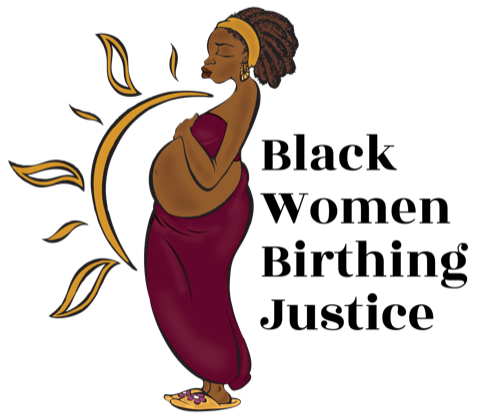Birthing Ways in Somaliland
A Midwife’s Perspective
For over twenty years, I have worked with the Harlem Birth Action Committee to activate, agitate and educate women and their families about the over-medicalization of childbirth. Last year, I took a sabbatical and was honored to have the opportunity to accept a three-month nurse-midwifery fellowship in Somaliland, East Africa.
Somaliland is an autonomous region of Somalia. Up to 1993, Somaliland was an integral part of Somalia, but a civil war has permanently separated the two lands into Somalia in the south and Somaliland in the north. Both regions speak one language. Somalia is the only country in Africa to have one language yet there is not much travel between the two regions. Rather, there is much bitterness between the two people. There are two main streams of thought here regarding nationhood. One school believes that Somaliland should be one separate nation and another school of thought believes that both regions should merge together and form one nation.
The one enduring characteristic that I noted during my stay in Somaliland was the nation-building drive that is so prevalent among the people. One of the most amazing and highly respected women that I met in Somaliland was Sister Edna Adan, the first woman to graduate as a nurse midwife in Somalia. Somaliland has one of the highest infant and maternity mortality rates in the world. 1,400 women out of 100,000 women giving birth in Somaliland die, and 73 infants in every 1000 do not live to their first birthday. To help combat these devastating conditions, Sister Edna founded the Edna Adan Maternity Hospital. In a few years, there was a dramatic drop in infant and maternal mortality rates. Sister Edna recognized, though that to sustain these efforts it would be necessary to train personnel such as nurse midwives, nurses, outreach workers, lab technologists and pharmacists and thus the Edna Adan University was born.
I learned so much about the importance of the family during my visit, and the importance of the strong support and love that the women have for each other. This was always evident in how women gave birth. They never gave birth alone. There was always a sister, an aunty, a mother, a grandmother, a friend available to meet the needs of that new mother no matter what. More than anything else, I was able to see how people were able to accept challenges in such a way that one realizes the acceptance of the WILL of the MOST HIGH. I cannot begin to tell you how many times l have had to watch a woman give birth to a baby who had died in utero, or watch a family see their premature baby die despite every medical effort to save that spirit. I have watched the heroic attempts of the doctors try to save a mother’s life because she stayed at home too long in labor. When I saw a mother nursing her 6-month-old hydrocephalic baby or watched the joy of a father whose baby had a spina bifida defect successful corrected or see the smile on the faces of women who have had their obstetrical fistulas repaired all I can say is Allah Akbar!
According to the WHO, the majority of pregnancy-related deaths in Somaliland are preventable. Among the many reasons for the deplorable mortality rates, is the fact that the women do not have enough access to qualified medical doctors or qualified midwifery care. Transportation is a major barrier to medical accessibility as well as the mother waiting too long before coming to the hospital. Many of the traditional birth attendants in Somaliland are not well versed in managing complicated births such as prolonged labor, obstructed labor, postpartum hemorrhage or other neonatal complications.
Another cultural mainstay among the Somaliland women that affects the birth process is the practice of female genital mutilation (FGM). Even though there is increased opposition to this practice, over 97% of the female population has had some form of FGM done to them as young girls. The severity of the "cutting" will determine whether the woman will have a C-Section or not. It will also determine if she will have painful sex or if she will have obstructed labor or any variation of a genital urinary complication. Sister Edna is a leading opponent of this practice and has written extensively about this continued practice.
Another important barrier to reproductive health is based in cultural traditions. Since Somaliland is a patriarchal society, a women often does not have any say in the number of children she will have or even if she will have a life-saving operative procedure. This will be the husband’s decision. I remember a thirty-eight year old mother having her fifteenth baby telling us in the labor room that she was tired of having babies and she wanted to know if the doctor could talk to her husband about child-spacing. The doctor said that she would tell the husband that having further children would be detrimental to her health. This mother had had 3 sets of twins and 4 breech births and she was "tired."
In Afrikan societies and in particular the Somalian culture, children are seen as gifts from Allah. The more children one has, the more respected the mother or father are in the community. Lastly, I noted that there are no single mothers. Everyone is expected to be married. Having children without a husband is almost unheard of. In fact, young people do not leave their parents’ home until they are married.
In conclusion, I would like to emphasize the need for Afrikan people in the U.S. to go home to Afrika to help our sisters and brothers; to lend our expertise in the nation building of a continent in need. Others do it, WHY NOT US!!!
Nonkululeko Tyehemba is a Master Midwife, Activist and Founder of the Harlem Birth Action Committee.
